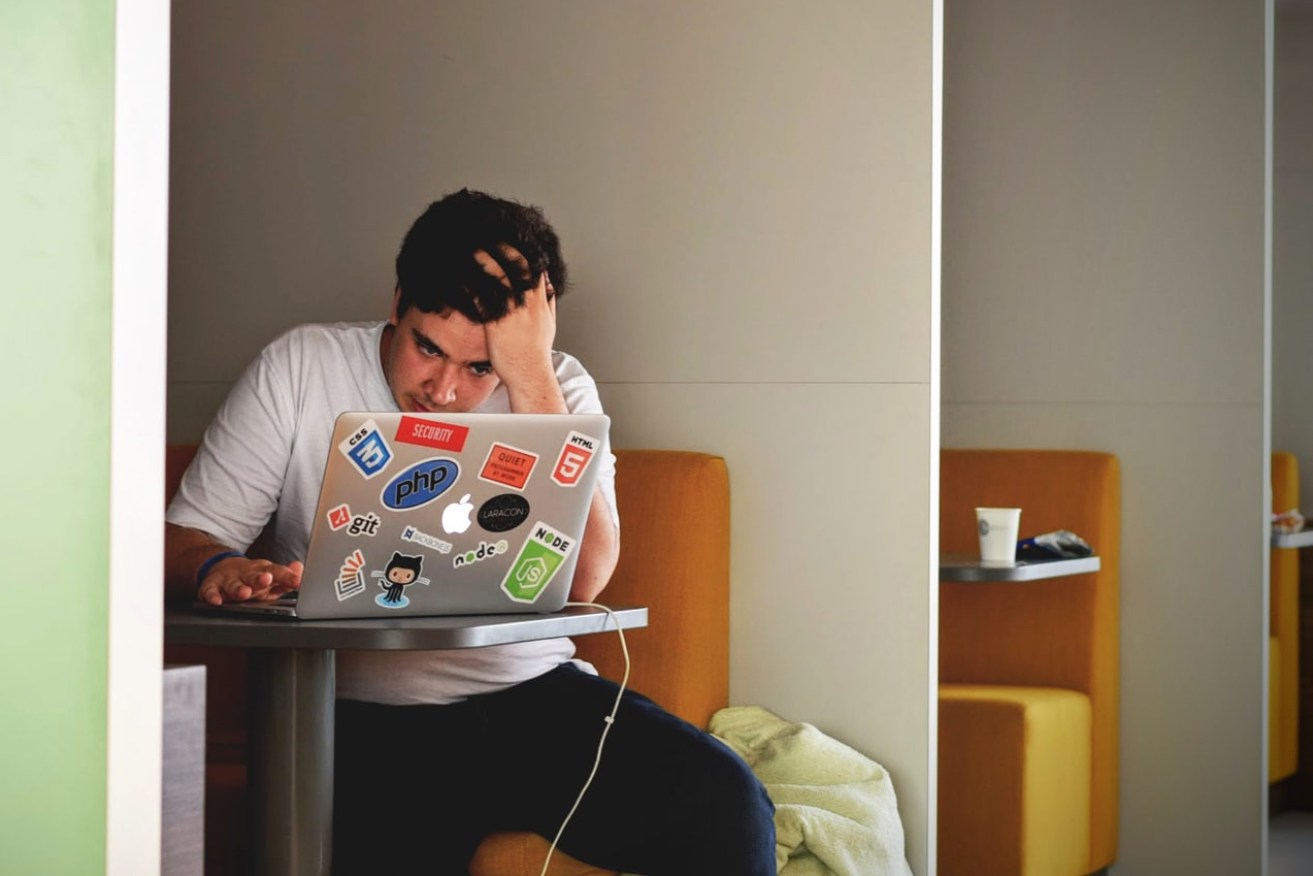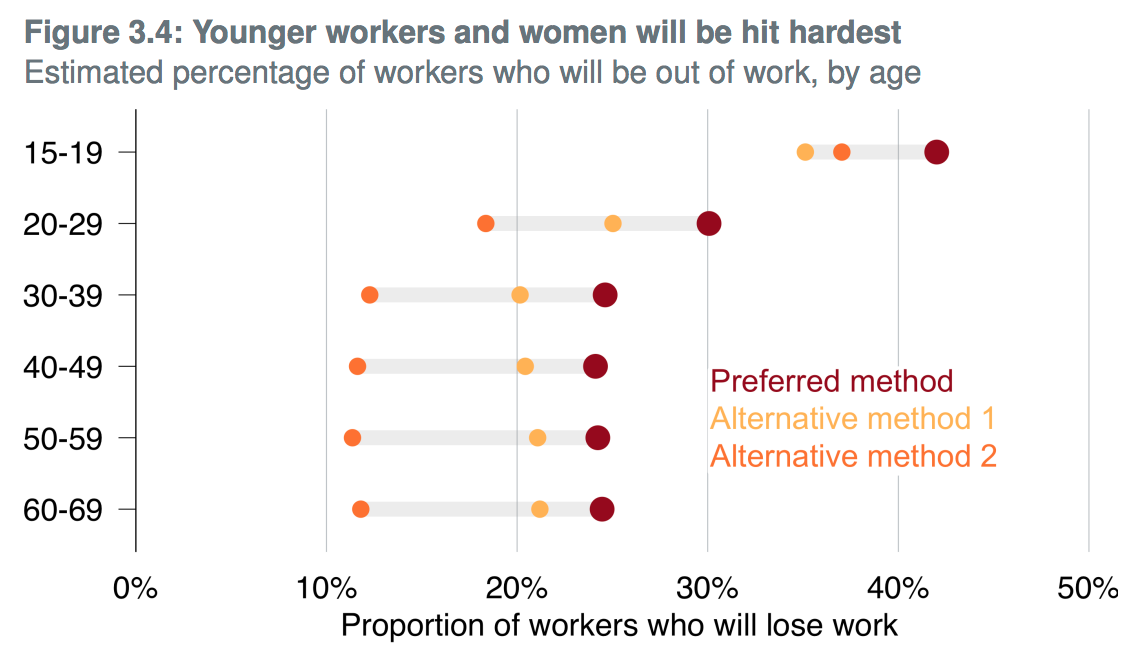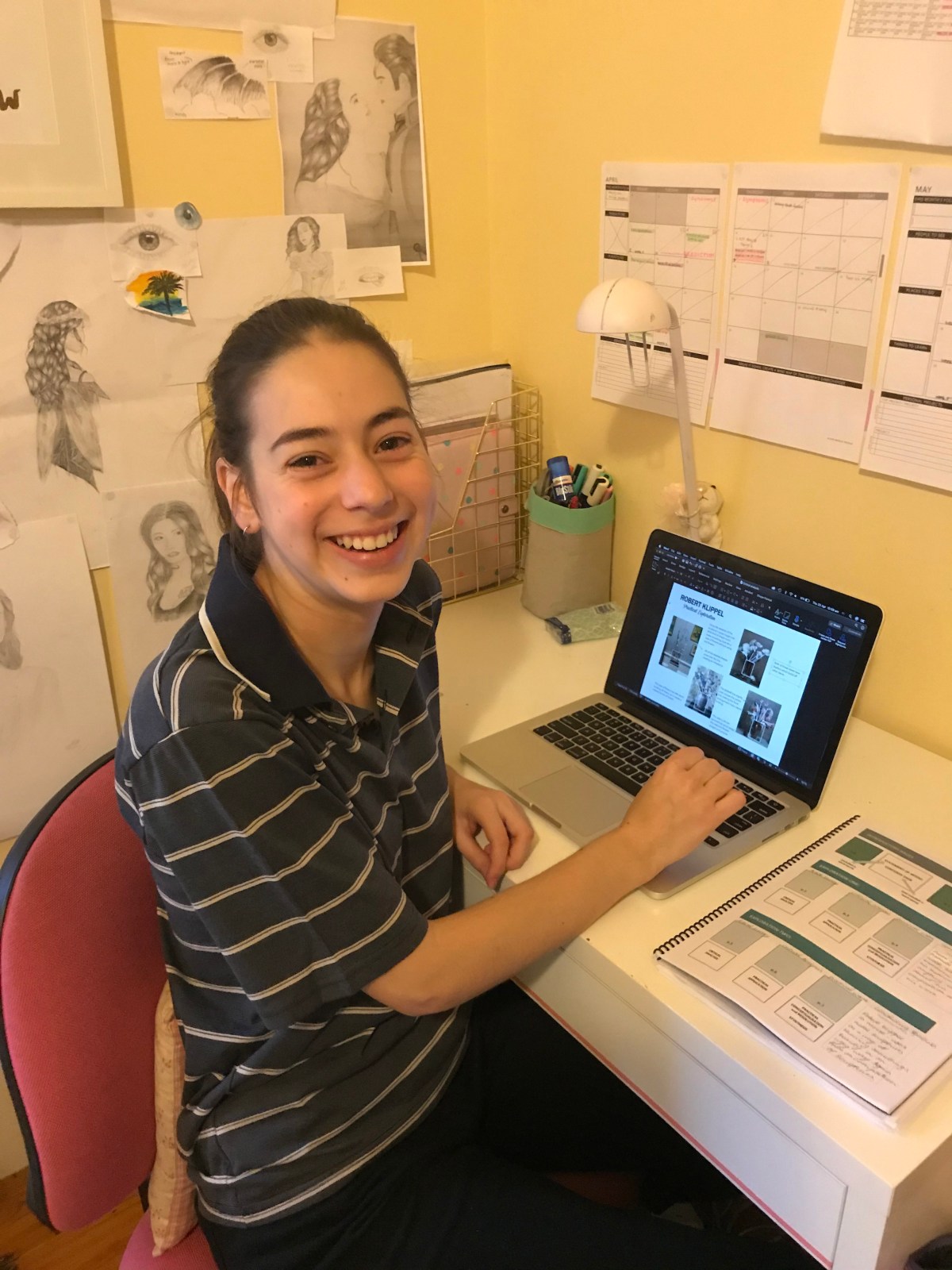Isolated, out of work, learning online: How young people are impacted by COVID-19
SPECIAL REPORT: Young people are likely to be hardest-hit by the economic impact of COVID-19. But there are other ramifications, too – social isolation and a loss of those rites of passage that we took for granted just a few months ago. We look at how young South Australians are coping.

Photo by Tim Gouw via Unsplash
“I had my all my ‘firsts’ at uni not taken away, but all postponed,” says first year Flinders University arts student Harry Wright.
“Going to study together at uni, all working on the next test at uni or just going to hang out and all that – that was all gone very quick.”
Like thousands of other young people across Adelaide, Wright had expected his first year of university to mark the beginning of new friendships and a more independent lifestyle, but COVID-19 became a roadblock just weeks into the semester.
Now stuck at home and studying online, Wright says he has found it difficult to stay in touch with the friends that he made during the first two weeks of the semester, and to keep on track with coursework.
“I think I’m finding uni harder than it’s meant to be,” he says.
“In those first two weeks it was a lot easier than it is now.”
It’s not just university students who are struggling to adapt to a new world of social distancing and online learning.
I know that Year 12s are strong – they’ll be OK and I reckon it will be alright
For young people who are still at school, particularly those in Year 12, COVID-19 has forced the cancellation of key rites of passage such as formals, sports days and concerts.
The coronavirus has also prompted concerns about how well equipped students will be to complete their SACE.
“It worries me that I’m going to miss out on some of the fun parts, the best parts of school in Year 12,” says Pulteney Grammar Year 12 student Emma Bertozzi.
“We were going to have the musical performance this term (but) that’s been completely cancelled because all the other dates had to be moved and rehearsals had to be cancelled.
“Even with the small role that I had, it was something that was a bit of a happy place, particularly with schoolwork and then having that co-curricular side.”
South Australian Commissioner for Children and Young People Helen Connolly says the state’s youth are experiencing the impacts of the coronavirus in different ways.
“The Year 12s that I’ve talked to, for them I think they’re feeling quite lost,” she says.
“It’s not just a year for them – it’s 12 years of schooling and I think there’s a whole heap of rites of passage that come with the Year 12 experience that they’re not getting at the moment.
“The first-year uni students I think are struggling as well.
“This was going to be an amazing adventure and it’s not panning out that way, and for a lot of them, they don’t necessarily have those online learning skills, so they’re really finding it hard to connect in with the online learning environment.”
Here, InDaily explores how South Australia’s young people are coping with the COVID-19 pandemic, what they say they are most concerned about and how the broader economic climate will shape their transition into adulthood once social distancing restrictions are lifted.
Young people hit hardest by COVID-19 economic downturn
According to independent think tank the Grattan Institute, about 40 per cent of employed teenagers will lose work due to the coronavirus pandemic – the highest percentage out of any age group in Australia – with people in their 20s the second most-likely to lose their job.
Young people make up a significant chunk, 40 per cent, of the casual workforce in Australia, with the majority working in industries that have seen the most job losses so far – accommodation, food services, arts and recreation.
The Australian Bureau of Statistics’ latest jobs update shows that between March 14 and April 4 – the three weeks after Australia recorded its 100th confirmed COVID-19 case – jobs for people aged under 20 decreased by just under 10 per cent.
South Australia’s March youth unemployment rate sits at 14.1 per cent – up from 13.4 per cent in February and the second-highest figure in the country behind Queensland. And that’s before the full impact of the pandemic shutdown hit the economy.
“Young people are being disproportionately impacted by job losses due to COVID-19 and they will feel the effects for years,” says Youth Affairs Council of SA CEO Anne Bainbridge.
“We know from the 1990s recession and the GFC that young people are hardest hit by economic downturn and take longer to recover – especially disadvantaged young people.”

Graph: Grattan Institute: Shutdown: estimating the COVID-19 employment shock
According to the Grattan Institute, younger generations will bear the “long-term costs of a severe and prolonged recession” if government support is not forthcoming.
During the 1990s recession, it took three years for the unemployment rate to peak, but almost eight years to return to its pre-recession level.
“Young people want governments and educational institutions to make sure that no one is left behind or made worse off by COVID-19,” says Bainbridge.
“They want to know how governments plan to address unemployment and what financial supports and protections will be put in place to ensure young people and the wider community avoid increased disadvantage.”
Commissioner Connolly says young people who have been working for less than 12 months are concerned that they are not eligible for the JobKeeper payment.
“They might still rely on their parent’s income, but it just means that they really feel that loss of independence,” she says.
“They’re not going to be eligible to get anything.”
“Marked increase” in anxiety and isolation
Year 12 student Emma Bertozzi says mental health has become a big talking point among people her age.
“There’s some anxiety about what’s going to happen with this COVID-19 stuff – is it going to be resolved, is there going to be problems in the future?,” she says.
“You also don’t have that separate world of school and home and so it’s all kind of just mixed together.”
Second-year university student Ryan von Einem says he feels “a little anxious” about returning to his part-time supermarket job after taking leave following an injury.
“I’ve heard stories about people’s attitudes – customers – (which are) good and bad,” he says.
“I feel kind of bad that I just happened to be not able to work in at the time of the crisis, and everyone’s going through a lot of stuff.
“The team’s going through a lot of stuff. I almost feel kind of guilty.”
Connecting with friends, extended family and support services are important coping mechanisms for all of us, but Bainbridge says those relationships are particularly important for young people.
“They’re reporting a marked increase in feelings of isolation and anxiety as a result of the restrictions,” she says.
“It’s important for people to understand that home isn’t a safe place for all young people and we’re deeply concerned we’ll see an increase in family conflict and violence, and homophobia and transphobia against young people who have limited or no options for spending time away from home.
“Young people are also experiencing increased stress and anxiety about job losses and they’re worried about how they or their family will pay rent and utilities, and buy food, medications, and other necessities.”
It comes as mental health counselling service Lifeline experienced unprecedented demand in March, receiving 24,000 calls a week at the height of the crisis.
These places were more than just chips and sundaes – it was actually about connection
South Australian Council of Social Service CEO Ross Womersley says there is an assumption that young people are more able to adapt to and recover from crisis than older generations, but “the reality is the opposite”.
“Young people are experiencing as much, if not even more, dislocation sometimes than some of the rest of us and so it is important that we pay attention to their needs, their interests and indeed the support that they require in order to get through this process,” he says.
“Young people need to be front and centre in those conversations.”
“It doesn’t feel like uni work”
Staying motivated and on-track with university and schoolwork has been a struggle for young people while learning online.
“I feel like I’m not learning a lot online because everything seems like homework. It doesn’t feel like uni work,” says Wright.
“It’s a lot easier to ask some questions, I think, without the face to face stuff, because it is… just an email and all my teachers have been very nice and have made themselves available to me.”

Year 12 student Emma Bertozzi at her home desk. Photo: supplied
Von Einem says completing group assignments has proved to be the biggest challenge while learning online.
“It’s kind of up to us how we want to communicate to each other,” he says.
“I’ve got a Messenger group or Discord. I’ve been lucky, I guess. The groups I’m in at the moment have been pretty proactive without needing to negotiate or anything like that.”
Meanwhile, Bertozzi says some of her Year 12 classmates are worried about how learning from home will impact their chances of completing the SACE.
“I don’t think that it’s (coronavirus) going to be a barrier, particularly because South Australia’s been doing so well with the number of cases these past couple of days,” she says.
“I’m having those hopes that it will be alright.
“So far we’ve been encouraged and told that everyone is going to be OK and we will be able to complete SACE and not have to do a second year of Year 12, so I’m just kind of hoping that will happen.”
Bainbridge says the move to online learning has created anxiety for many young people, who feel that there’s not enough support to help them navigate the transition.
“They’re struggling with focus and motivation and worried about the quality of online education and falling behind in their studies,” she says.
Digital divide more glaring than ever
Coping with online schooling and virtual friendships is even more challenging when young people are without a stable internet connection at home.
Helen Connolly says some disadvantaged young people in Adelaide’s north and south are struggling to access WiFi following the closures of McDonald’s dining areas and libraries.
“We have a lot of kids who… have just phone data but they don’t have internet connected at home,” she says.
“McDonald’s is the place where everyone went to get wifi (and) that includes young people who are homeless (and) young people who are just really broke.
“These places were more than just chips and sundaes – it was actually about connection.”
Womersley says the coronavirus has highlighted South Australia’s digital divide, with the impacts on young people likely to be “profound”.
“If it does, and it will, interfere with their (young people’s) connection to education and study, then, in fact, it’s more likely that they’ll disengage,” he says.
“The more disengaged they are, the harder it will be to reconnect people and, of course, that in turn has major issues for long term career opportunities because people simply won’t get the skills, knowledge and maintain the connections that enable them to flow through into careers as they get older.”
Coping with coronavirus while sleeping rough
St Johns Youth Service CEO Wendy Malycha was concerned that the coronavirus would prompt a spike in demand for youth crisis accommodation, but she says the opposite happened, with some young people choosing to return to their families or move to private rental accommodation.
“It’s sort of a bit like the Christmas phenomenon,” she says.
“When push came to shove, there were some young people who returned home, their families wanted them home and they wanted to be there in the face of COVID.
“We have been able to keep moving young people through the system because the international students have not been able to come to Australia, (so) there’s actually a bit more rental of private rental accommodation available.
“I haven’t heard that there’s been a big surge of people (that have) actually been out in the streets as a result.”
There are approximately 28,000 Australians aged 12 to 25 who are homeless on any given night, with 70 per cent of those having a history of family violence, child abuse or family breakdown.
Bainbridge says those numbers are expected to rise as job losses and tensions in the family home escalate the risk of domestic and family violence.
In South Australia, the State Government has provided short-term motel accommodation to young people experiencing homelessness during the coronavirus pandemic, as well as additional cost of living support and food relief.
“The interesting thing that has happened as part of the move – and this has impacted adults as well – is that suddenly, for health reasons for the whole community, it wasn’t okay to have rough sleepers,” Malycha says.
“That’s quite significant from a homelessness point of view because we’ve been comfortable with people being on the streets for a long time.”
Keeping connected key to COVID-19 recovery
Connolly says it’s important for young people to remain connected to friends, family and support services as they wade through feelings of uncertainty about the future.
“There’s this whole sense of what’s going to happen at the end of it? Will we bounce back? Will it be like this forever?
“When we’re making decisions and policies… we need to think about everyone and how we can support and assist everyone including this kind of group of young people who may otherwise go under the radar.”
Bertozzi says the coronavirus pandemic has been troubling for everyone.
“I know that Year 12s are strong, they’ll be OK and I reckon it will be alright,” she says.
“I’m not doing too badly so hopefully everyone else is doing OK, and I know there are plenty of support services out there that can help or just have someone to listen to with any problems.”
If this article has raised issues for you, you can call LifeLine 24 hours a day seven days a week by dialling 13 11 14. Beyond Blue and headspace are other national organisations offering comprehensive mental health support.
If you or someone you know is experiencing domestic violence call 1800RESPECT on 1800 737 732 for 24/7 counselling.
Want to comment?
Send us an email, making it clear which story you’re commenting on and including your full name (required for publication) and phone number (only for verification purposes). Please put “Reader views” in the subject.
We’ll publish the best comments in a regular “Reader Views” post. Your comments can be brief, or we can accept up to 350 words, or thereabouts.




